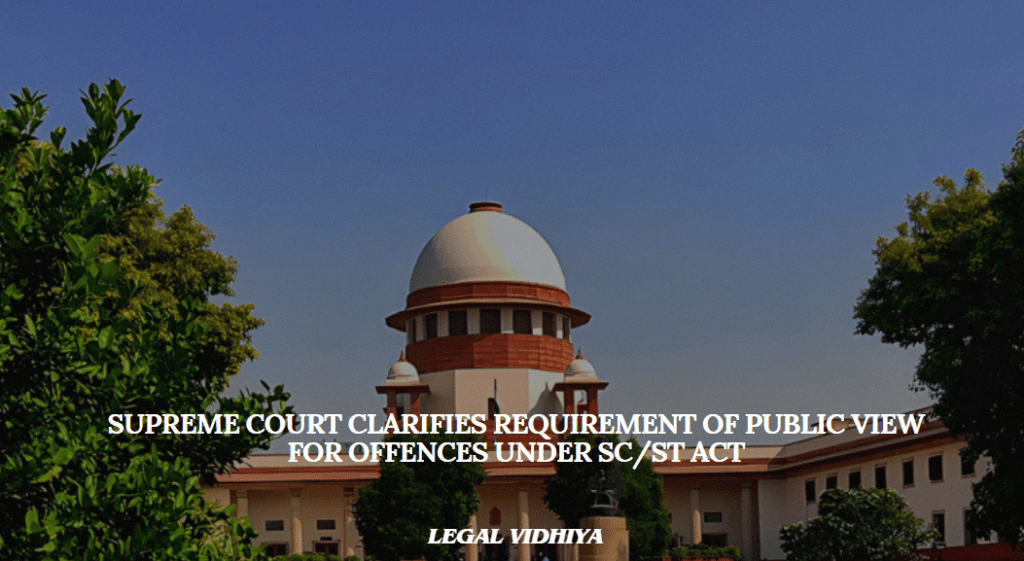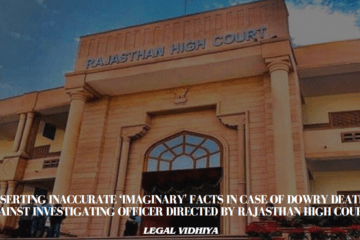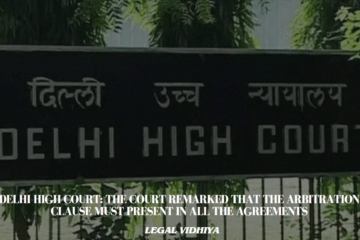
In a significant ruling, the Supreme Court has provided clarity on the requirement of public view in cases involving offences under the Scheduled Caste and Scheduled Tribe (Prevention of Atrocities) Act, 1989. The apex court, while deciding on a case arising from a complaint under this Act, emphasized that an allegation of insult must meet the criteria of having been made within public view.
The case in question stemmed from an application filed under Section 156 of the Criminal Procedure Code (CrPC) before the Trial Court by the appellant, alleging an offence under the SC/ST Act. The Trial Court ordered a preliminary inquiry into the matter, subsequently dismissing the application. However, the High Court overturned this decision and ordered the registration of an FIR, prompting the appellants to approach the Supreme Court.
Upon examination, the Supreme Court underscored the importance of allegations being specific and disclosing the elements of the offence. It focused on Section 3(1)(r) of the Act, which defines an offence as an intentional insult or intimidation intended to humiliate a member of a Scheduled Caste or Tribe in any place within public view.
Highlighting the phrase “in any place within public view,” the Court analyzed the appellant’s allegations and found them to be ambiguous. It noted that the accusations lacked clarity regarding where the alleged insults were made and before whom. The Court emphasized that ‘public view’ entails being within the sight of someone other than the complainant.
For instance, the Court pointed out that certain allegations lacked essential details such as the location and year, which made it difficult to determine whether the insults were made in public view.
Furthermore, the Court upheld the Trial Court’s decision to order a preliminary inquiry, stressing that the Magistrate must exercise discretion judiciously under Section 156(3) of the CrPC. It cited precedents to support the notion that the Magistrate should carefully consider the circumstances of the complaint and the alleged offence before ordering an FIR.
In its verdict, the Supreme Court concluded that the allegations did not meet the requirement of being made in public view. Therefore, it deemed the High Court’s order of filing an FIR unsustainable.
Justices MM Sundresh and SVN Bhatti, delivering the judgment, affirmed that the Trial Court’s decision to order a preliminary inquiry was justified, and the accusations in the complaints failed to satisfy the criterion of being made in any place within public view.
This ruling provides crucial guidance on the interpretation and application of the SC/ST Act, ensuring that allegations of insult or intimidation are scrutinized within the appropriate legal framework.
Written by- Praadyumn sharma




0 Comments